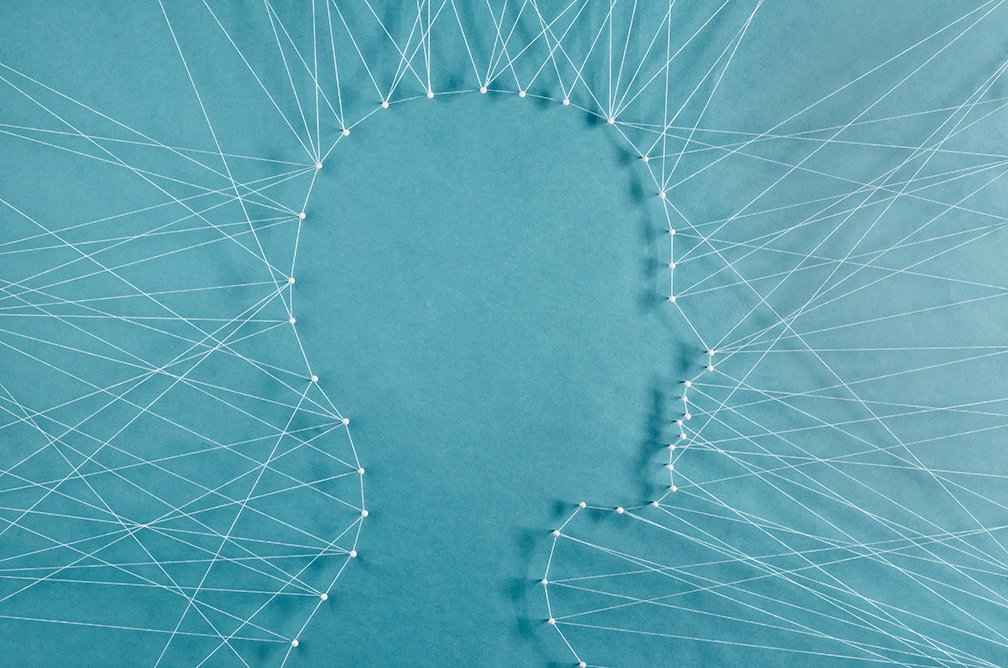Interdisciplinary Scholars Awards Represent Meetings of the Minds
July 31, 2017

Faculty members in the College of Liberal Arts and Human Sciences are collaborating in three of the six teams receiving 2017–18 Scholars Awards from the Virginia Tech Institute for Society, Culture and Environment.
Abby Walker, an assistant professor of English in the College of Liberal Arts and Human Sciences, and Mike Bowers, an assistant professor in the School of Neuroscience, will use their Scholars Award to solidify their collaboration in exploring the brain’s response to shifts in dialect and the potential for poor comprehension.
“Mike and I are fairly new faculty members, looking at language from different angles and radically different methodologies,” said Walker. “This project is not just exciting for the specific research questions we’re tackling, but because of the way it establishes a research connection between his lab in the School of Neuroscience and the Speech Lab in the Department of English. We’re already plotting about other ways we can combine our research skills and agendas, and it really is truly collaborative, where together we are able to answer questions we might not be able to tackle alone.”
Their project will attempt to understand why some people are better than others at comprehending unfamiliar accents.
“The extended logic is that if we can understand these listeners’ advantage, we might be able to improve cross-dialectal communication in others,” said Walker.
Walker and Bowers will use brain imaging technology to explore listeners’ reactions to unexpected, regionally marked pronunciations. The technology will allow the team to get immediate, unfiltered reactions from listeners, and then compare the brain activity data with the existing literature on brain responses to different types of linguistic stimuli. The goal is to tease out how comprehension works.
“This technique is super exciting, especially from my perspective as a sociolinguist,” said Walker. “No one in my field is doing anything like this right now, and it opens up the possibilities of asking and answering new questions that weren’t even really conceivable before.”
Karen Roberto, director of the Institute for Society, Culture and Environment and a University Distinguished Professor in the Department of Human Development, said that institute leaders are excited about this year’s scholars projects.
“The faculty teams are focused on innovated and timely issues that require transdisciplinary collaboration and exemplify the value of the social sciences to effectively address the complexity of individual development and societal challenges,” she said.
The six teams will pursue an array of interdisciplinary pilot projects in preparation for seeking external funding from the National Institutes of Health, the National Science Foundation, and other sources to support their research agendas.
In addition to Walker and Bowers’s collaboration, the 2017–2018 scholars and projects are:
- Martha Ann Bell, a professor of psychology in the College of Science and a professor of human development in the College of Liberal Arts and Human Sciences; Richard Ashley, a professor of economics; Angela Scarpa, an associate professor of psychology; Cynthia Smith, an associate professor of human development; and Julie Dunsmore, an associate professor of psychology, will examine children’s self-regulation in interactions with parents to see how those processes contribute to children’s developing self-regulation and general cognitive and emotion development.
- Navid Ghaffarzadegan, an assistant professor of industrial and systems engineering; Ran Xu, a postdoctoral associate of industrial and systems engineering; and Joshua Hawley, an associate professor at The Ohio State University, will investigate the trends of career choices, research focus, and collaboration patterns of new doctorates in health policy.
- James Hawdon and John Ryan, both professors in the Department of Sociology, will explore risk, exposure, and participation in cross-national online extremism.
- Shalini Misra, an assistant professor of urban affairs and planning, and Patrick Roberts, an associate professor in the Center for Public Administration and Policy, will investigate the challenges that digital overload poses for managerial thinking and decision-making.
- Divya Srinivasan, an assistant professor of industrial and systems engineering; Susan White, an associate professor of psychology; Shyam Ranganathan, an assistant professor of statistics; Maury Nussbaum, a professor of industrial and systems engineering; Zhenyu Kong, an associate professor of industrial and systems engineering; and Joseph Gabbard, an associate professor of industrial and systems engineering, will research innovative technological solutions to self-injurious behavior in people on the autism spectrum disorder.
Adapted from an article written by Katie Williams





